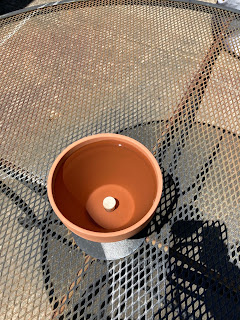In yesterday's post When Society No Longer Benefits relatively new commenter Bob (we are glad you are here, Bob!) made the following comment:
"But if this "society" of which you speak no longer exists, what's the answer? Relocate to another one?"
It is a good question. I will try to provide my proposed answer.
I start with a couple of base facts:
1) Given the current interconnectedness of the world, "relocating" to another society may be possible, but probably just reflects degrees of difference instead of true difference. Sadly, this is no longer the Late Medieval Europe and there really is no undiscovered country.
2) Physical relocation is, for most people, not a limited possibility. Sure, there is always a group of people that are able and willing to move at the drop of a hat. For most, it is a process that takes a lot more time and thought and will be more limited in scope over time (after college, I have moved nine times in thirty years, seemingly each time with more people and more stuff. I have told The Ravishing Mrs. TB I have one more move in me and I am done.
So based on these two base case facts, what to do?
What I positing is the idea of building a society within a society.
There is the outer society that I currently live in with its laws, expectations, taxes, and social norms. The ability of the individual to impact this is fairly limited at best. The only thing I can do in this situation is minimize my involvement with it and its involvement with me.
For some, that might look like moving from a more intrusive state or country to a less intrusive state or country. It might mean purchasing less (to avoid sales taxes), and finding ways to minimize one's tax positions and other revenue generating devices used by governments to separate individuals from their hard won cash. It might mean that I choose to participate much less in the society (I do participate a lot less actually), or when I am forced to, to spend the minimum time on anything involving social norms and expectations.
Of course, if one is taking something away, one needs to replace it with something else. And that is second part, the building of a society within a society.
That is a rather grandiloquent way of simply doing what our parents told us to do, make friends with interesting and good people, emulate them, and spend time with them.
The reality is, this already is happening as well. The Social Internet - of which this blog and most of the blogs over to the right are part of - is already connecting small groups of like minded individuals, separated perhaps by distance but not by interest or philosophy. There are financial communities as well - barter group, cryptocurrency adherents, even the proverbial "gold bugs" - that exist and practice what they preach effectively on the fringes of "society". Ed, purveyor of Riverbend Journal and resident Forty-Five optimist, spends his efforts on his local community and local government - which works as well, although the dilutive effect in larger urban areas may not work as well.
In all ways, there is a movement that is - in a sense - counter-counter cultural, coalescing on the fringes and putting their way of life into practice. It is these societies that we are building, small pockets of hope and goodwill and knowledge, unifying individuals that may be in disparate locations but benefit from belonging to the other.
It is not a glamourous process. It is not a fast process. But I can at least provide my own perspective of why I do this.
Simply, I fit in here.
I fit in here among individuals which - although holding different opinions about some things - hold similar opinions about things like personal liberty, personal freedom, classical culture (if you are at all based in the West, you live in classical culture), and practicing, each in our own way, the process of making a living for ourselves rather than being dependent on someone else or the government. I fit in here, where we can disagree (we sometimes do - even here) but do so with mutual respect and some fashion of listening to the other's ideas.
The larger society is becoming more and more torn apart by centrifugal forces: rising spending, atomization of society combined with a greater and greater demand for uniformity of thought and opinion, and the increasing expectation that society should become and do more for the individual, thus increasing the dependency of the individual on those that provide their necessities (and giving such authorities more power). This combination cannot last. Something has to give. And when it gives, those societies within the societies will remain, ready to begin the effective renaissance of a civilization.
I close with a phrase from Mahatma Gandhi. While I am not nearly the pacifist he was, what he speaks to is what will ensure that such societies within societies continue to thrive:
"I am prepared to die, but there is no cause for which I am prepared to kill. I object to violence because when it appears to do good, the good is only temporary; the evil is permanent. Strength does not come from physical capacity; it comes from an indomitable will."
Ultimately, our societies within societies exist and thrive because we have the will to be different than the rest, and to practice that differences in meaningful ways to improve our lives and (eventually) the lives of others. Would that our wills are indomitable as well.















